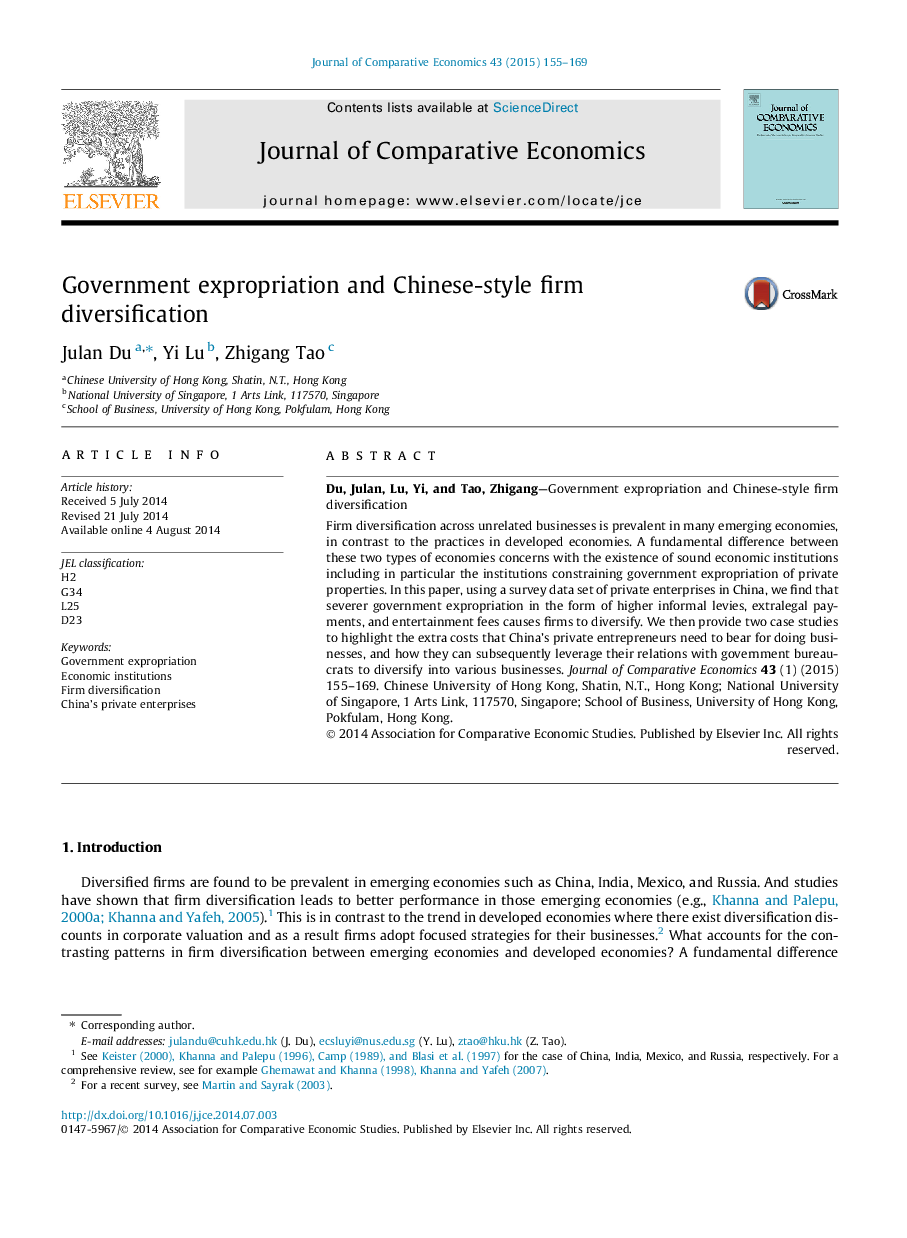| Article ID | Journal | Published Year | Pages | File Type |
|---|---|---|---|---|
| 5092240 | Journal of Comparative Economics | 2015 | 15 Pages |
â¢In China, government expropriation leads to business diversification.â¢Private entrepreneurs have to nurture close relationships and win trust from bureaucrats.â¢Private entrepreneurs acquire the relationship-specific rights to do business.â¢Private entrepreneurs can leverage their privileges into new business lines.â¢This often involves over-diversification with efficiency losses.
Firm diversification across unrelated businesses is prevalent in many emerging economies, in contrast to the practices in developed economies. A fundamental difference between these two types of economies concerns with the existence of sound economic institutions including in particular the institutions constraining government expropriation of private properties. In this paper, using a survey data set of private enterprises in China, we find that severer government expropriation in the form of higher informal levies, extralegal payments, and entertainment fees causes firms to diversify. We then provide two case studies to highlight the extra costs that China's private entrepreneurs need to bear for doing businesses, and how they can subsequently leverage their relations with government bureaucrats to diversify into various businesses.
